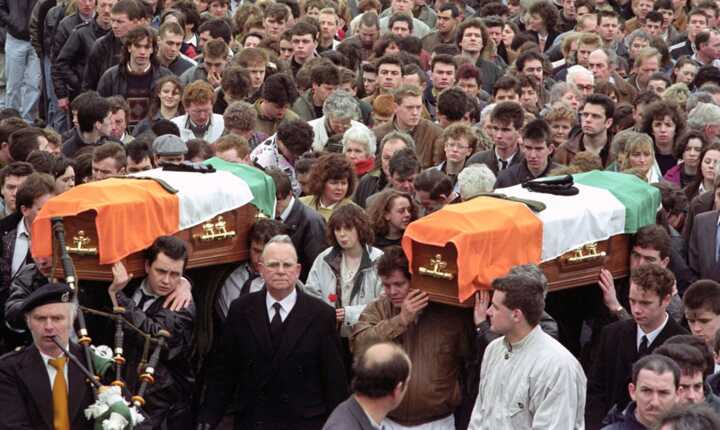

Four Provisional IRA members - Kevin Barry O’Donnell, 21, Sean O’Farrell, 23, Peter Clancy, 19, and Daniel Vincent, 20 - were shot and killed on 16 February 1992 at St Patrick’s Church in Clonoe, Co Tyrone.
Members of a specialist British military unit used lethal force that was not justified in the killing of four IRA men in a 1992 ambush, a High Court judge has ruled.
Northern Ireland’s presiding coroner, Mr Justice Michael Humphreys, found that the Specialist Military Unit soldiers who shot them did not have an honest belief in the necessity of using lethal force and that it was unjustified and not reasonable.

The four IRA men were shot dead by the soldiers minutes after they had carried out a gun attack on Coalisland Royal Ulster Constabulary (RUC) station.
The RUC was the police force in Northern Ireland from 1922 to 2001 and it played a major role in the Troubles between the 1960s and the 1990s.
The special forces opened fire as the men arrived at St Patrick’s Church car park in a stolen lorry they had used in the police station attack.
An inquest into the circumstances of the killings opened in 2023.
Mr Justice Humphreys, who is also a High Court judge, said the use of force by the soldiers was, in the circumstances they believed them to be, "not reasonable".
The judge also criticised the operation, saying it was not planned and controlled in a way to minimise to the "greatest extent possible" the need to use lethal force.
He also rejected the soldiers’ claims that the IRA members opened fire in the car park, saying they were "demonstrably untrue".
Mr Justice Humphreys went on to say that reports created by the police force in the aftermath, including those provided to government ministers, referred to simultaneous firing and a firefight.
He said these statements were "demonstrably untrue and must have been known to be untrue".
"The reasons for putting forward such false justifications for the actions of the soldiers are obvious," he added.
"This, coupled with any lack of proper challenge of their accounts by the RUC investigators, ensured there would be no actual accountability."